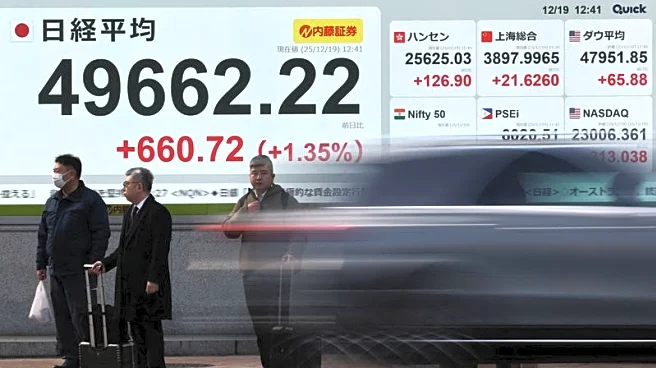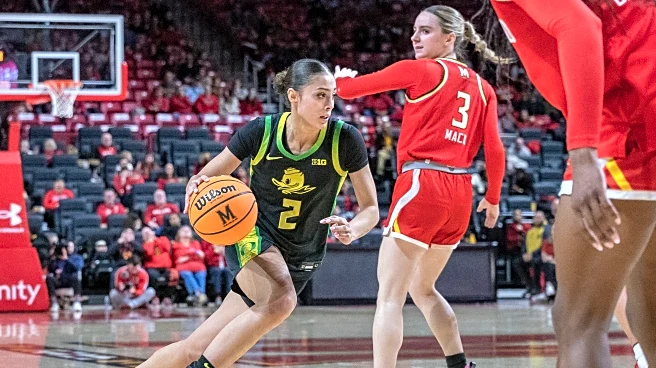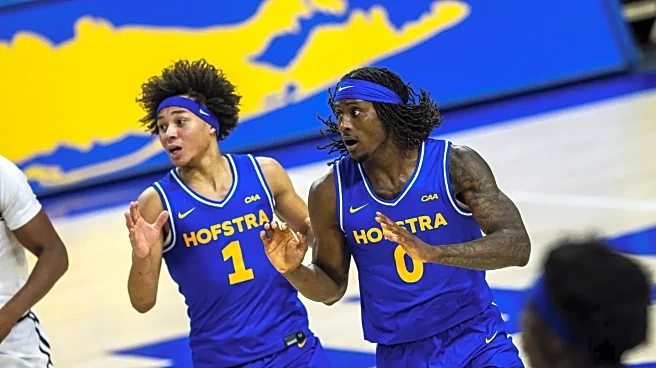What is the story about?
What's Happening?
Comedian and podcaster Theo Von has publicly criticized the Department of Homeland Security (DHS) for using a clip of him in a deportation video without his consent. The video, which went viral, included footage of immigration authorities making arrests and parts of President Trump's address to the United Nations. Von, known for his podcast 'This Past Weekend,' expressed his disapproval on social media, stating that his views on immigration are more nuanced than the video suggests. Following his criticism, DHS removed the video from its platforms. Von has previously interacted with figures from the Trump administration, including hosting President Trump on his podcast during the presidential campaign.
Why It's Important?
The incident highlights ongoing tensions between public figures and government agencies regarding the use of personal content in official communications. It raises questions about intellectual property rights and the ethical considerations of using media without consent. The removal of the video by DHS suggests sensitivity to public backlash and the importance of maintaining positive relations with influential personalities. This event also underscores the broader debate on immigration policies under the Trump administration, which has faced declining support for its handling of the issue.
What's Next?
While DHS has removed the video, it remains unclear if Theo Von or other involved parties will pursue legal action. The situation may prompt government agencies to review their policies on using third-party content in official communications. Additionally, this incident could lead to increased scrutiny of how public figures' content is utilized in political messaging, potentially influencing future collaborations or endorsements.
Beyond the Headlines
The use of Theo Von's clip in the DHS video reflects broader cultural dynamics, where social media influencers and comedians play significant roles in shaping public discourse. This event may encourage other influencers to be more vigilant about their content's use in political contexts, potentially leading to more stringent measures to protect intellectual property rights. It also highlights the intersection of entertainment and politics, where media personalities can influence public opinion and policy discussions.















